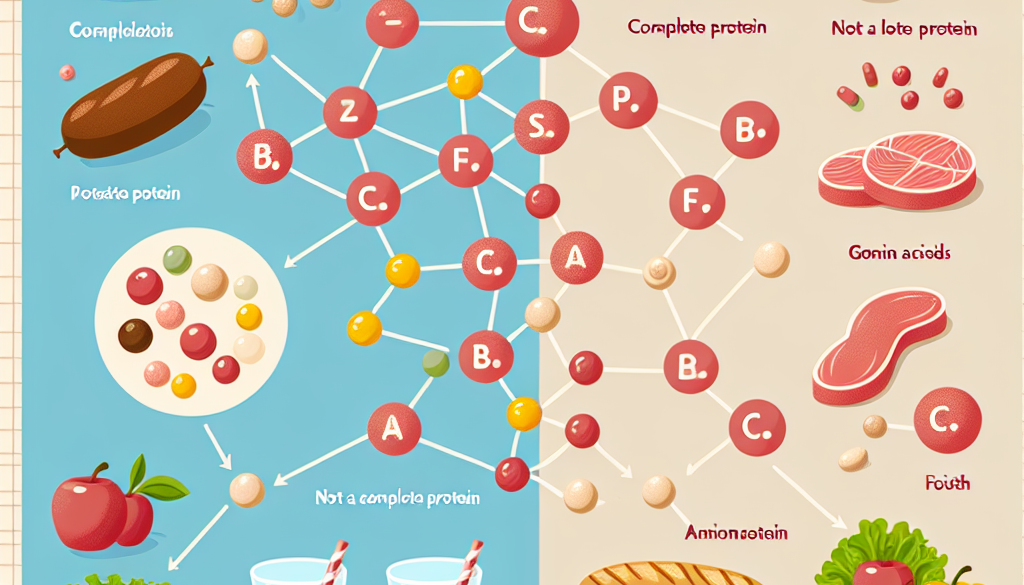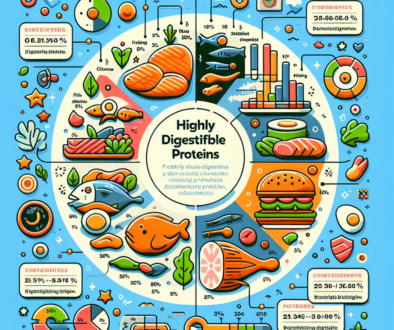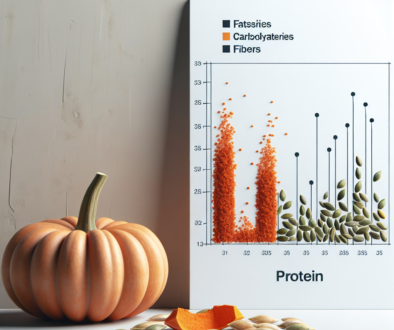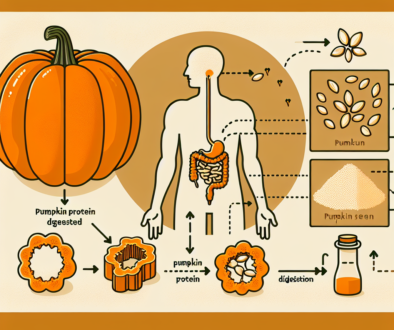Which Food Is Not A Complete Protein?
-
Table of Contents
- Complete Proteins vs. Incomplete Proteins: Understanding the Difference
- What Are Complete Proteins?
- Identifying Incomplete Proteins
- Common Incomplete Protein Sources
- The Importance of Amino Acid Profiles
- Examples of Protein Complementation
- Case Studies and Statistics
- Health Implications of Incomplete Proteins
- Strategies for Vegetarians and Vegans
- Tips for Ensuring Adequate Protein Intake
- Conclusion: Balancing Your Protein Intake
- ETprotein: Your Source for High-Quality Protein Products
Complete Proteins vs. Incomplete Proteins: Understanding the Difference
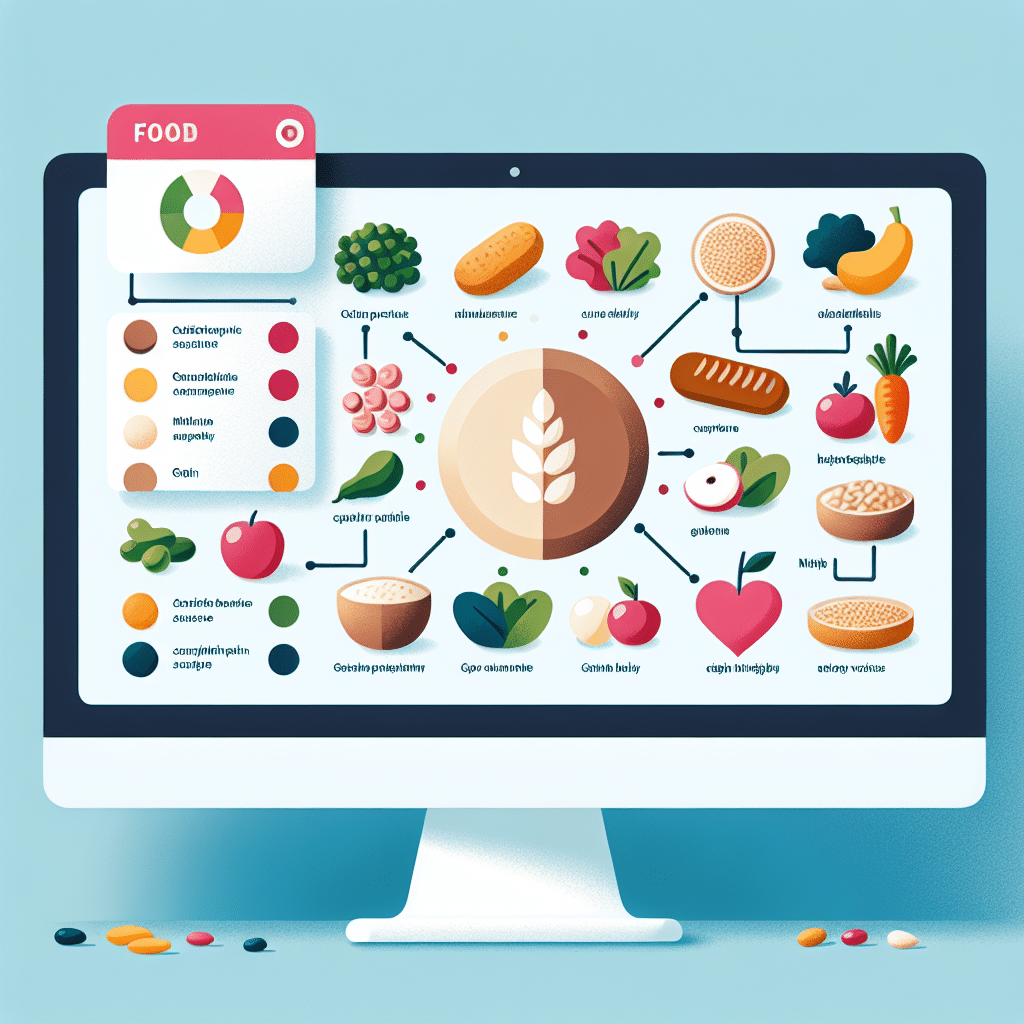
Proteins are essential macronutrients that play a critical role in building, maintaining, and repairing tissues in the body. They are made up of amino acids, which are often referred to as the building blocks of life. While some foods contain all the essential amino acids our bodies need, others lack one or more of these components, leading to the classification of proteins as either complete or incomplete. In this article, we will explore which foods are not considered complete proteins and the implications this has for dietary choices.
What Are Complete Proteins?
Complete proteins are foods that contain all nine essential amino acids in sufficient quantities. These amino acids cannot be synthesized by the body and must be obtained through diet. Animal-based foods such as meat, poultry, fish, eggs, and dairy are typically complete proteins. Some plant-based options, like quinoa and soy, also fall into this category.
Identifying Incomplete Proteins
In contrast, incomplete proteins are those that lack one or more of the essential amino acids. These are typically found in plant-based sources. Understanding which foods are incomplete proteins is crucial for those following vegetarian or vegan diets, as they need to ensure a well-rounded intake of all essential amino acids through various food combinations.
Common Incomplete Protein Sources
- Legumes (beans, lentils, chickpeas)
- Grains (rice, wheat, corn)
- Nuts and seeds (almonds, walnuts, flaxseeds)
- Vegetables (broccoli, spinach, kale)
The Importance of Amino Acid Profiles
The body requires different amino acids in different amounts. Foods with incomplete proteins can still be valuable parts of a diet, especially when combined with other foods to create a complete amino acid profile. This practice is known as protein complementation.
Examples of Protein Complementation
- Rice and beans
- Peanut butter on whole wheat bread
- Hummus with pita bread
Case Studies and Statistics
Research has shown that a varied plant-based diet can provide all the necessary protein for human health. For example, a study published in the American Journal of Clinical Nutrition found that strategic combinations of plant-based foods could meet protein requirements for athletes, who typically have higher protein needs.
Health Implications of Incomplete Proteins
While it’s important to consume all essential amino acids, it’s also crucial to understand that an excess of certain amino acids can lead to health issues. For instance, methionine, found in high levels in some animal proteins, has been linked to increased risk of certain diseases when consumed in large amounts. Incomplete proteins, therefore, can offer a health advantage by naturally balancing amino acid intake.
Strategies for Vegetarians and Vegans
Those following plant-based diets should be mindful of their protein sources. By combining different plant foods throughout the day, they can ensure a complete amino acid profile without needing to consume all essential amino acids in one meal.
Tips for Ensuring Adequate Protein Intake
- Include a variety of protein sources in your diet.
- Understand the amino acid profiles of your food.
- Use protein complementation to balance amino acid intake.
Conclusion: Balancing Your Protein Intake
In conclusion, while not all foods provide complete proteins, this does not diminish their nutritional value. By understanding which foods are incomplete proteins and how to combine them effectively, individuals can enjoy a diverse and healthful diet that supports all bodily functions. It’s not just about the quantity of protein consumed but also the quality and combination of amino acids that matter.
ETprotein: Your Source for High-Quality Protein Products
If you’re looking for high-quality protein supplements, ETprotein offers a range of organic bulk vegan proteins that can help you meet your dietary needs. Their products are non-GMO, allergen-free, and feature a neutral taste, making them an excellent addition to any diet, especially for those who require complete protein sources.
About ETprotein:
ETprotein, a reputable protein and L-(+)-Ergothioneine (EGT) Chinese factory manufacturer and supplier, is renowned for producing, stocking, exporting, and delivering the highest quality organic bulk vegan proteins and L-(+)-Ergothioneine. They include Organic rice protein, clear rice protein, pea protein, clear pea protein, watermelon seed protein, pumpkin seed protein, sunflower seed protein, mung bean protein, peanut protein, and L-(+)-Ergothioneine EGT Pharmaceutical grade, L-(+)-Ergothioneine EGT food grade, L-(+)-Ergothioneine EGT cosmetic grade, L-(+)-Ergothioneine EGT reference grade and L-(+)-Ergothioneine EGT standard. Their offerings, characterized by a neutral taste, non-GMO, allergen-free attributes, with L-(+)-Ergothioneine purity over 98%, 99%, cater to a diverse range of industries. They serve nutraceutical, pharmaceutical, cosmeceutical, veterinary, as well as food and beverage finished product distributors, traders, and manufacturers across Europe, USA, Canada, Australia, Thailand, Japan, Korea, Brazil, and Chile, among others.
ETprotein specialization includes exporting and delivering tailor-made protein powder and finished nutritional supplements. Their extensive product range covers sectors like Food and Beverage, Sports Nutrition, Weight Management, Dietary Supplements, Health and Wellness Products, and Infant Formula, ensuring comprehensive solutions to meet all your protein needs.
As a trusted company by leading global food and beverage brands and Fortune 500 companies, ETprotein reinforces China’s reputation in the global arena. For more information or to sample their products, please contact them and email sales(at)ETprotein.com today.

